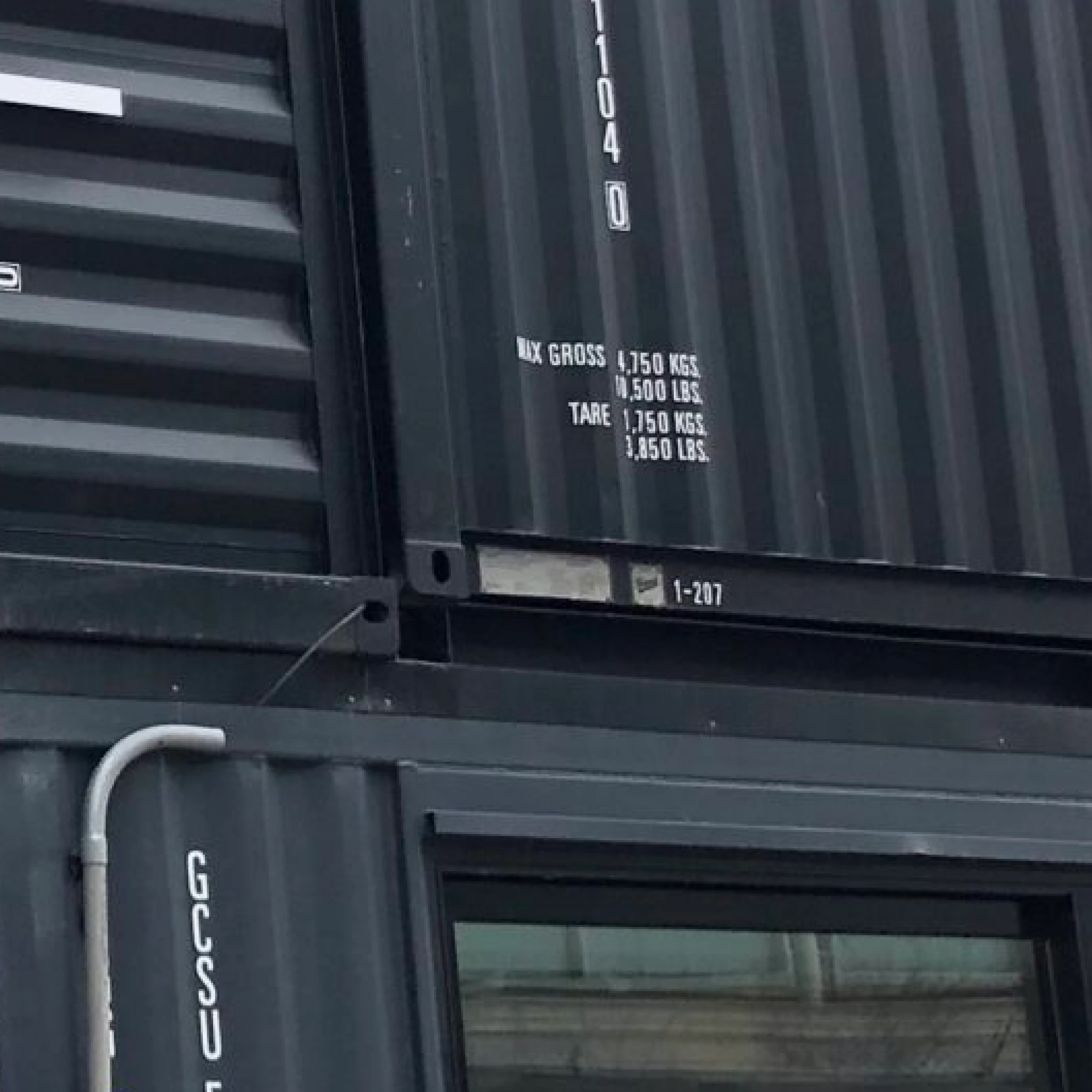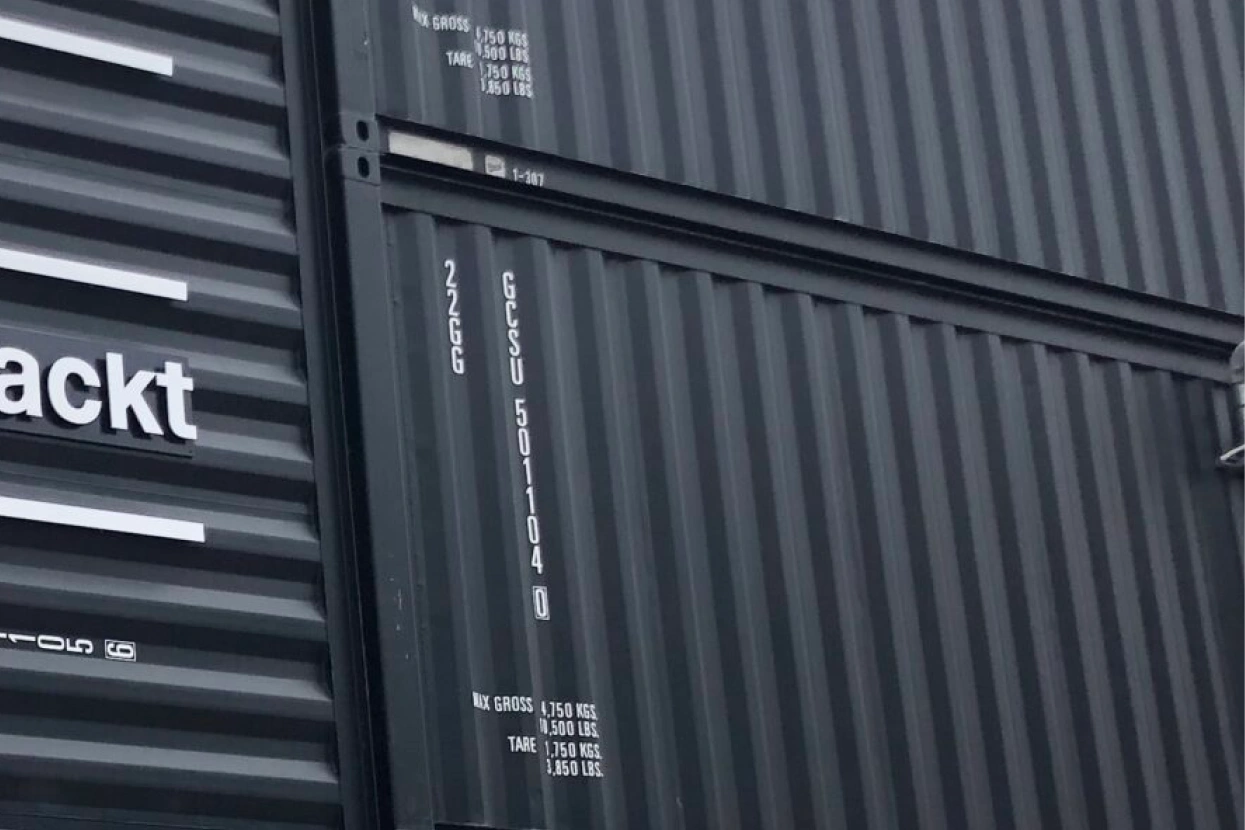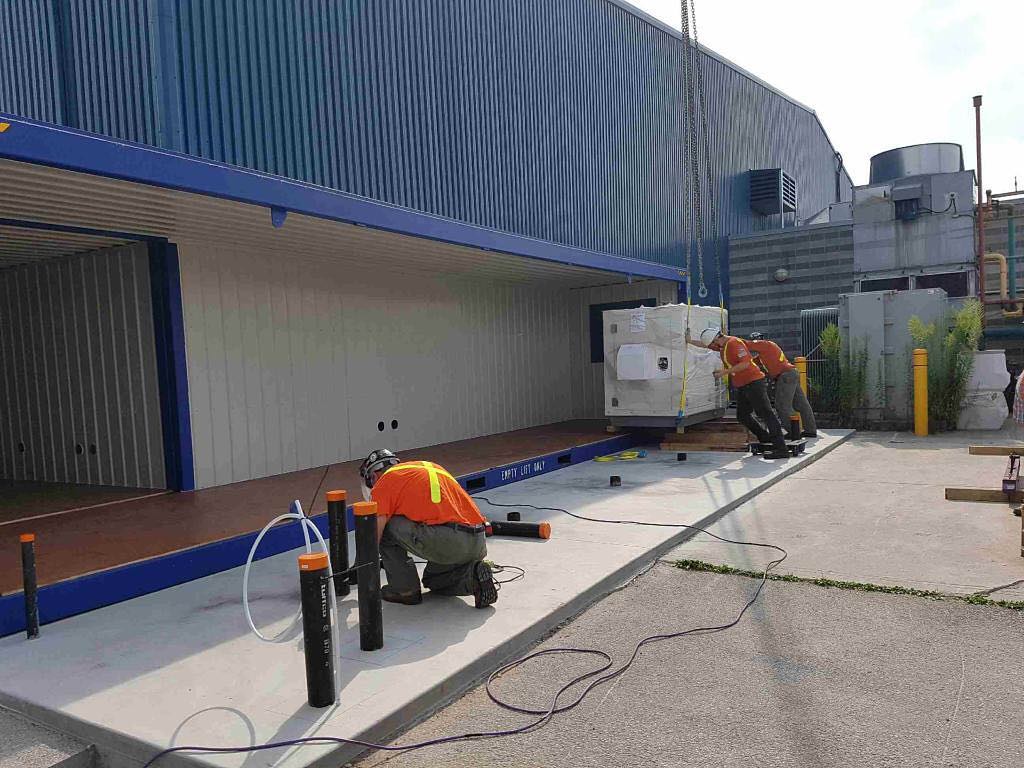The Benefits of Shipping Container Cafes and Pop-Up Spaces


Shipping container cafes and pop-up spaces are revolutionizing the way we think about food, creativity, and community. These innovative structures offer a unique blend of functionality and aesthetics, making them a popular choice for entrepreneurs and city planners alike. In this blog, we'll dive into the numerous benefits of using shipping containers as cafes and pop-up venues, including their cost-effectiveness, sustainability, and ability to foster community engagement.
Cost-Effective Business Solutions
One of the most compelling benefits of shipping container cafes is their cost-effectiveness in comparison to traditional brick-and-mortar establishments. Setting up a cafe in a shipping container requires a significantly lower initial investment, which can be a game-changer for budding entrepreneurs. With lower overhead costs, owners can experiment with unique concepts and menus without the financial strain that often accompanies conventional venues.
Not only do shipping containers help save on construction expenses, but they also reduce ongoing operational costs. These structures are often easier to maintain and can be relocated as needed. This flexibility means that cafe owners can respond quickly to market demands and consumer preferences, adjusting their location to maximize foot traffic and sales potential. In a fast-paced business environment, this adaptability is invaluable.
Moreover, shipping container cafes can be modified with energy-efficient appliances and alternative power sources, such as solar panels. By incorporating these sustainable practices, owners can further decrease their utility bills while promoting an eco-friendly image—something that resonates well with today's environmentally conscious customers.
Sustainable Practices in the Food Industry
Sustainability is a pressing concern in the food industry, and shipping container cafes are leading the charge in this area. By repurposing unused containers, these establishments not only contribute to waste reduction but also promote a circular economy. This practice aligns with the growing consumer demand for eco-friendly options, making shipping container cafes an attractive choice for environmentally conscious patrons.
Additionally, these cafes often emphasize locally-sourced ingredients and minimal food waste practices. Many owners integrate composting systems and work with local farms, creating a closed-loop system that benefits both the environment and the community. This commitment to sustainability resonates with customers, encouraging them to support businesses that actively participate in environmental stewardship.
Shipping container cafes also provide an opportunity to educate patrons on sustainable practices. With their unique setups and interactive designs, these spaces can host workshops, events, and discussions focused on responsible eating and waste reduction. By fostering this type of engagement, they play a vital role in raising awareness and inspiring change within the community.
Flexibility and Versatility of Pop-Up Spaces
The flexibility offered by shipping container cafes and pop-up spaces sets them apart from traditional establishments. They can be easily transported, making it possible to host them in various locations depending on seasonal trends, events, or market demand. This adaptability encourages innovation, allowing entrepreneurs to experiment with new ideas and concepts without a long-term commitment.
For example, a shipping container cafe might debut at a summer festival, showcasing a pop-up menu inspired by local ingredients. After the event, the same container can be moved to a different location, perhaps near a beach or park, capitalizing on foot traffic during the warm months. This mobility can lead to remarkable growth opportunities for small businesses seeking to test their offerings in diverse markets.
Moreover, the versatility of shipping containers allows them to serve various functions, beyond just food service. They can be transformed into art galleries, retail shops, or community gathering spaces, providing multiple revenue streams for owners. This multifunctionality enables entrepreneurs to adapt to changing consumer needs and preferences, ensuring their business remains relevant.
Unique Aesthetic Appeal for Customers
One cannot underestimate the unique aesthetic charm of shipping container cafes. These installations often boast an industrial look that appeals to the senses, offering a fresh escape from the traditional cafe environment. The creativity that goes into designing and outfitting these spaces can not only attract customers but also deepen their overall experience while visiting.
Many container cafes incorporate vibrant colors, eye-catching art, and thoughtful landscaping to create an inviting atmosphere. This visually stimulating setup encourages customers to linger, enjoy their food, and soak in the ambiance, effectively turning a casual visit into a memorable outing. The unique aesthetic encourages social media sharing, generating buzz and free advertising that keeps the cafe on the map.
Furthermore, the customizable nature of shipping containers allows business owners to express their brand's personality through design. Whether it’s through eclectic furnishings, engaging artwork, or themed decorations, each shipping container cafe can narrate its own story, attracting visitors seeking not just coffee, but also an experience to share.
Fostering Community Connections
Shipping container cafes have a unique ability to foster connections within their communities. As gathering places for locals, they create a sense of belonging and camaraderie among visitors. People from different walks of life can come together over a cup of coffee or a tasty meal, actively engaging in conversations that strengthen community ties.
Many shipping container cafes capitalize on their community-centric appeal by hosting local events, markets, or workshops. These gatherings not only give patrons a chance to interact with one another but also support local artists, musicians, and small businesses. By creating a space where people feel welcomed and valued, these cafes play a vital role in building a thriving community.
In addition, shipping container cafes often contribute to the revitalization of underutilized urban areas. By transforming vacant lots or neglected spaces into vibrant cafe hubs, they breathe new life into neighborhoods, encouraging foot traffic and broader community engagement. As a result, these unique establishments help cultivate a sense of pride among locals, making their neighborhoods more inviting and enjoyable for everyone.
Innovative Uses Beyond Cafes
While the concept of a shipping container cafe is exhilarating, the potential applications of these structures extend far beyond just food service. Entrepreneurs can creatively adapt containers into various formats, from trendy retail stalls to immersive art installations. This versatility fosters innovation and imagination in urban development.
For instance, shipping containers can be repurposed into creative spaces for workshops or classes, hosting anything from painting sessions to culinary experiences. These venues not only draw in foot traffic but also encourage personal development and community participation, amplifying the shipping container movement's impact beyond the culinary realm.
Moreover, shipping container concepts also serve non-profit objectives. Many organizations utilize these structures for mobile food banks or as shelters during emergencies, demonstrating the profound social impact that can arise from such adaptable designs. With a little imagination, shipping containers can serve a variety of purposes, enriching community life in ways that traditional venues often cannot.
Need some more inspiration?
Check out our recent projects





